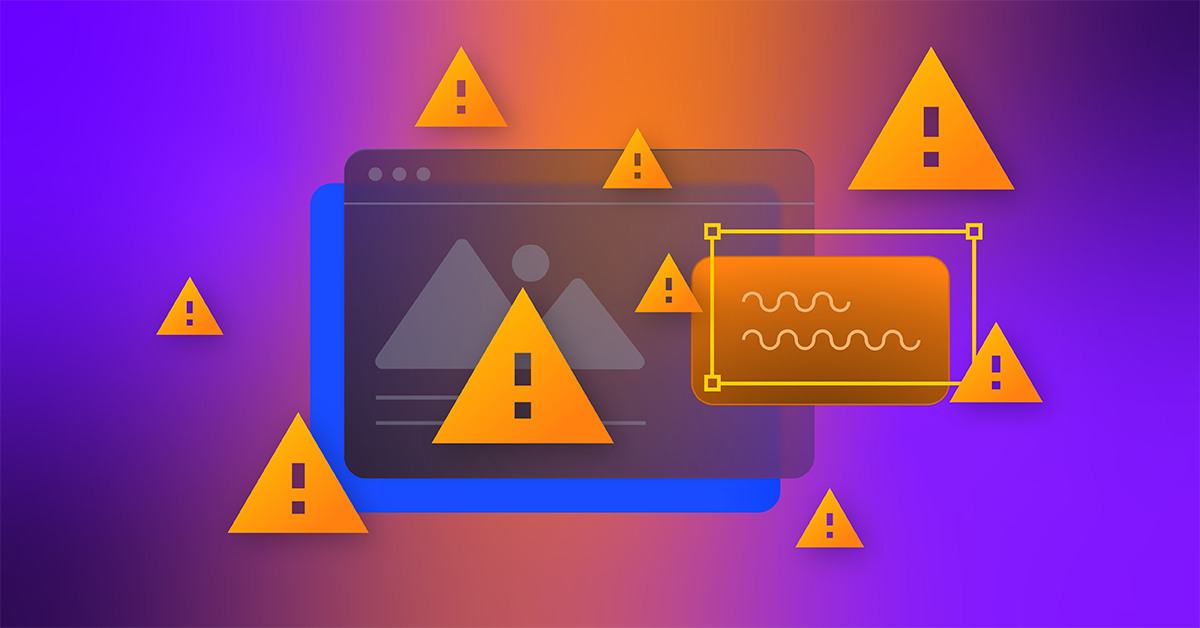9 warning signs it’s time to break up with your CMS
Your CMS not exactly giving you the warm and fuzzies? Here are some of the red-flag signs it’s time to rethink your CMS situationship.


We’ve all been there.
You fall head over heels with “the one”.
A content management system (CMS) you thought was perfect for your business.
And for a while, everything was roses in the garden. It did all the right things for you. It made you feel pretty darn great about the digital experience you’re giving your customers.
However, as time’s gone on, cracks have started to show. Maybe it’s getting trickier than ever to actually get, y’know, content out the door. Maybe your team’s been relying more and more on convoluted workarounds to get the job done.
Rather than an efficiency tool, your CMS has become more of a liability, monopolizing your company resources. Revenue is taking a hit. Your web traffic’s gone a bit stagnant. Getting a relatively straightforward campaign out to market is now seemingly a mammoth task.
And all the while (gulp) your competitors are getting ever more agile.
With more business challenges to deal with than ever before, today's digital leaders need the best possible content management system in their arsenal. So, if your CMS isn't getting the job done, then it's time to upgrade. But first, let’s cover:
How to know when to call time on your CMS
So, not quite the happy ever after you were after.
You might be wondering whether it’s time to break up and move on. But, ugh, the idea of change is hard. Settling might seem like the lesser of two evils, especially if you’re balking at the expense, time and work involved in switching to a new CMS.
But we’re here for some real talk — some of the red-flag signs it’s time to rethink your CMS situationship.
And if you’re currently experiencing any (or all, yikes!) of these common problems with your current CMS, we’ve got some next steps to keep in mind.
-
Your CMS can’t scale with your business
Back in the day, you invested in a CMS system that did the job just fine. But as your business grows, and your business model changes, what you need your CMS to do is bound to evolve as well.
Multi-site, multi-region, multi-language — your existing content management system just can’t handle your digital ✨ glow-up ✨. Whatever the reason you think you’ve outgrown your CMS, one thing’s for sure — your website’s growth is bound to be stunted until a better solution is implemented.
If you’ve got that nagging feeling that your CMS is limiting your growth, innovation, or competitiveness, you should start looking for alternatives that can better support your business where it’s at today (and future-proof you for where you’re going 💪🔥).
-
Your marketers don’t have control over their own content
Here’s a biggie. Content publishing workflows can get quite complex, so your CMS needs to do the heavy lifting, rather than your marketers. If even the simplest copy updates or basic campaign landing pages mean your dev team need to enter the fray, it’s probably time to rethink your tool. Because bottlenecks and never-ending handoffs between marketing and dev teams — they’re just not the one.
And, yep, while your marketers might have learned to live with the pain that comes with settling for an outdated content management system, there are newer, sexier CMSs on the block that come with features like visual editors that can help them create seriously gorgeous-looking pages with limited technical know-how.
Trust us, your marketers are clamoring for this. WYSIWYG editors, (like *ahem* Optimizely’s Visual Builder) help marketers create new content experiences lickety-split, using a drag-and-drop visual interface, templates and real-time previews, like so:
Not to mention, you’ll be freeing up time for more creative thinking and execution. Because, hey, we bet you don’t want to waste your team’s marketing wizardry on manual, tedious, copy-paste jobs.
🌶️ Hot tip: Fed up with serving up the usual tired “related” or “most popular” article to your site visitors? Look for a CMS that offers features like AI-guided content recommendations that can build interest profiles for each visitor and instantly pull interesting posts or case studies, keeping content fresh and relevant their interest profile (with no manual input required from your marketers).
-
Your CMS doesn’t empower marketers to reuse content
Creating content is enough work as it is. But if reusing it — quickly and easily — is a whole other headache, then this is a glaring red flag.
With the right CMS at your disposal, once a piece of content is made, it should be able to be quickly repurposed literally anywhere, saving marketers hours of time. Your marketers can even use content like building blocks for emails, social posts, and all types of digital channels. And even better again, your marketers will be able to iterate on that content, keeping pace with changing customer preferences. Trust us, this is something they’ll seriously thank you for.
-
Your CMS doesn’t support omnichannel marketing
Your CMS should give your marketing team the ability to execute omnichannel marketing campaigns and deliver the right content across devices. We’re talking everything from websites to mobile apps, yes, but also IoT devices, voice assistants and wearables. If you’re not offering omnichannel experiences, then, boy oh boy, you are missing out.
-
Your CMS doesn’t let you deliver personalized content
Got personalization campaigns that should have been rolled out weeks ago that are currently crawling along at a snail’s pace? This could well be down to your outdated CMS.
Your website visitors aren’t exactly easy to please these days. They expect the right content to be delivered to them at the right time. It’s why they’re happy to hand over their data to marketers in the first place. If your CMS is holding you back from leveraging all that lovely data so you can deliver back a relevant, contextual digital experience that captures the attention (and wallet-share) of your customers, then that’s likely hurting your website’s conversions and engagement.
🚌 One for your commute: How to build a bada$$ website
-
Your CMS doesn’t integrate well with other technology
Tools and technologies are designed to make work easier, faster, and smarter. But too many disconnected martech tools have the opposite of the intended effect — they slow everything down and make your marketers’ work waaaaay more complicated than it needs to be.
When your CMS doesn’t exactly play ball with other software, your team will have to compensate with time-consuming manual workarounds for common content tasks. Or, your dev team may have to invest time and resources. This lack of flexibility is a major red flag that it’s time to upgrade to a more innovative CMS option (like, *cough*, Optimizely CMS).
-
Your CMS doesn’t prioritize security
Nowadays, security is a non-negotiable in any digital strategy – we’re all too aware of how cataclysmic it would be to your reputation if your website were to be compromised by bad actors.
Now’s the time to ask your CMS provider about their approach to cybersecurity. If your business has extensive security needs but your CMS’s security features are lagging behind on those, that’s a big old red flag.
-
Your CMS has gotten spendy 💸
Feel like you’re paying more each month, and have less and less ROI to show for it? Although the upfront costs of switching your CMS might be more than you’d like, chances are you’ll end of saving both time and money in the long run.
🌶️ Hot tip: A new CMS is only one part of the puzzle when it comes to delivering a world-class digital experience, but a good provider will be able to provide you with estimates of potential uplifts. And make sure they back these up with some credible case studies.
-
Your CMS provider isn’t offering the support you need
And last but certainly not least, you should be getting some reliable, trustworthy support. Hey, maybe your CMS isn’t even that terrible — maybe it’s the provider. 😬
Your team needs access to training, guidance on how to get the most out of the system, and most importantly a support team that can jump in and help out when something goes awry.
A note on starting afresh with a new CMS
We get it. Making the switch and starting over with a new CMS isn’t a decision you make overnight (or after reading one blog post!)
After all, change is hard — even when it's for the better.
And who knows, maybe your company is in a state of collective denial about just how limiting your current CMS is. Taking some time to chat to your team about the CMS can help ensure that you choose a content management system that will mitigate those concerns. It also ensures that your team feel heard, which will go a long way toward getting everyone's buy-in. And once you’ve decided on your new CMS, if you’ve done your up-front work and are confident it will fit well into your current systems, your team should be able to transition just fine.
And as the transition process begins, always keep in mind that over-communication is best. Explain to your team why the change is needed, how the new CMS will better meet their burning marketing needs, and what you need from them to make the transition as smooth as possible.
And of course, lean on your CMS provider as much as possible to make this change less arduous — and know that while the initial change can be nerve-wracking, the resulting benefits to you and your team will be worth it in the end.
Ready to make the switch?
Even though a CMS migration can be complex, switching to a more functional, scalable, and robust system will benefit your business in the long run. For more on that very topic, check out our guide to choosing the right CMS.
